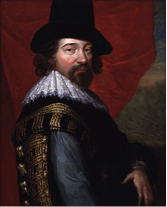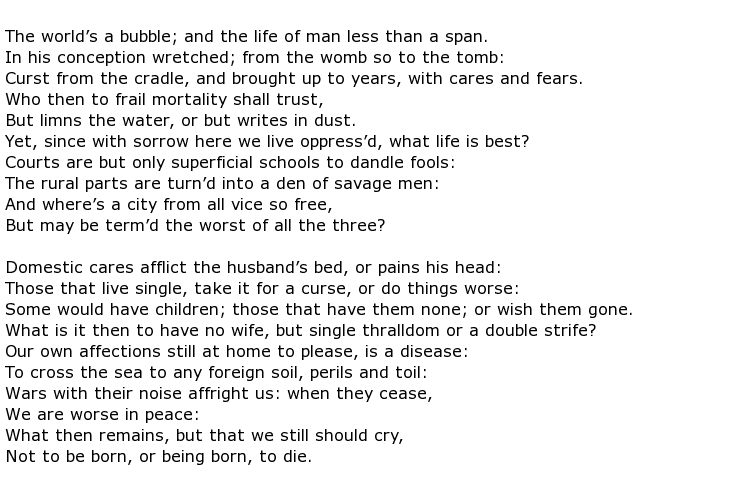 Sir Francis Bacon is remembered by historians as a great philosopher, scientist and politician. His life seemed to be a constant series of peaks and troughs where he was, at one time, the Lord Chancellor of England and therefore the most powerful man in the land. But then there were times when he was mired in debt and, in fact, he had considerable debts to his name when he died. He was also disgraced when found guilty of taking bribes, a judgement which left his career in tatters. A great writer of poetry and pamphlets, he was responsible, in the 16th century, for challenging the old ideas of scientific thinking. He was probably prompted to do so from the age of 12 when he found himself ensconced within the portals of Cambridge University and was soon challenging the
Sir Francis Bacon is remembered by historians as a great philosopher, scientist and politician. His life seemed to be a constant series of peaks and troughs where he was, at one time, the Lord Chancellor of England and therefore the most powerful man in the land. But then there were times when he was mired in debt and, in fact, he had considerable debts to his name when he died. He was also disgraced when found guilty of taking bribes, a judgement which left his career in tatters. A great writer of poetry and pamphlets, he was responsible, in the 16th century, for challenging the old ideas of scientific thinking. He was probably prompted to do so from the age of 12 when he found himself ensconced within the portals of Cambridge University and was soon challenging the

Francis Bacon was born into a wealthy family in London in January 1561. His father, Sir Nicholas, held the important appointment of Keeper of the Great Seal for Queen Elizabeth 1. He was educated at home throughout his early years before going to Cambridge and then Gray’s Inn, London where he studied the law. He entered parliament and filled a number of important roles despite not being in the Queen’s favour. His fortunes improved though when James 1 became king in 1603. He was knighted that same year and eventually followed in his father’s footsteps as Keeper of the Great Seal.
His great passion though was to challenge all the scientific thinking that had gone before. Academics had long used the theories of Aristotle to explain the great mysteries of the universe and Bacon soon set about challenging all of this. There is an illustration in his great work Instauratio Magna which shows a ship passing through the pillars of Hercules. The old idea was that these pillars represented the boundary of man’s possibilities – in other words any voyage of discovery could go no further. Bacon disputed this theory and devised a new method of thinking to replace what had gone before. He set this out in his Novum Organum. Bacon was, by the time of the reign of James 1, so revered that he was able to convince others of the limitations of ancient learning and included a quotation from the Book of Daniel in his book The Advancement of Learning. It said:

Bacon continued to advance his political career. He served as Attorney General and Lord Chancellor and yet spent a lot of his time being embarrassed by ever mounting debts. In 1621 he became Viscount St Albans but his power and influence soon took a downward turn when he was accused of taking bribes while acting as judge some years earlier. He admitted the charge and was fined and sent to prison. His status at court was stripped away from him and, although later pardoned by the King, his public life was over. From then on he concentrated on writing at his home in Hertfordshire until his death in 1626.
Not much of Bacon’s poetry survived but it seems that he applied his scientific thinking to some of the pieces that he wrote. A good example is Life of Man where he describes the life of a man as a series of processes to go through, “from the womb so to the tomb”:

Sir Francis Bacon contracted pneumonia and died on the 9th April 1626, aged 65.

